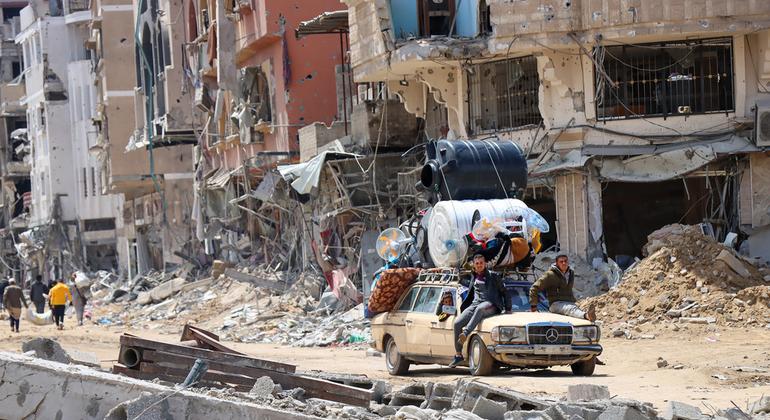The world is currently facing a polycrisis, according to Tom Fletcher, the UN Emergency Relief Coordinator and head of the UN aid coordination office, OCHA. In an appeal for $47.4 billion to provide life-saving aid in more than 30 countries and nine refugee-hosting regions, Fletcher emphasized that the most vulnerable people in the world are bearing the brunt of these crises.
Fletcher highlighted the impact of conflicts and crises of longer duration and greater intensity, stating, “We are dealing with the impact of conflicts – multiple conflicts – and crises of longer duration and of more intense ferocity.” This dire situation has led to a desperate need for humanitarian assistance in various regions around the globe.
OCHA’s new humanitarian assessment, representing more than 1,500 humanitarian partners, paints a grim picture of the current situation. Out of the 305 million people in need, it is expected that only 190 million will receive the necessary assistance. This shortfall in reaching all those in need is due to a variety of factors, with lack of funding being a major issue.
One of the countries facing significant challenges is the Democratic Republic of the Congo (DRC), where decades of violence and instability have taken a toll on the population. Despite the readiness of humanitarian workers to do more in such conflict-ridden areas, resources are limited. Fletcher stressed the importance of providing the necessary resources to aid workers on the frontlines and called on the world to do more to address the current era of impunity and indifference.
In his role as the UN’s top aid official, Fletcher has pledged to take a proactive approach by visiting government capitals to forge new partnerships and seek solidarity for the world’s most vulnerable populations. Drawing on his experience as a UK ambassador in conflict and peace-building efforts, Fletcher emphasized the importance of ensuring that aid reaches those who need it the most.
Acknowledging the changing geopolitical landscape, particularly in a year marked by significant national and presidential elections, Fletcher noted that governments may become more critical of the UN’s work. However, he expressed optimism that by making a strong case for humanitarian assistance, compassion can prevail in the decision-making processes of these newly elected governments.
During the unveiling of the Global Humanitarian Overview 2025, Fletcher highlighted the ongoing challenges faced by communities worldwide. Despite the obstacles, he remains committed to advocating for the most vulnerable and ensuring that aid continues to be delivered effectively.
Overall, the world is grappling with a complex web of crises that require urgent attention and resources. With a concerted effort from governments, humanitarian organizations, and the public, it is possible to address the pressing needs of those most affected by these challenges. The call to action is clear: solidarity and support are needed to alleviate the suffering of millions around the globe.









